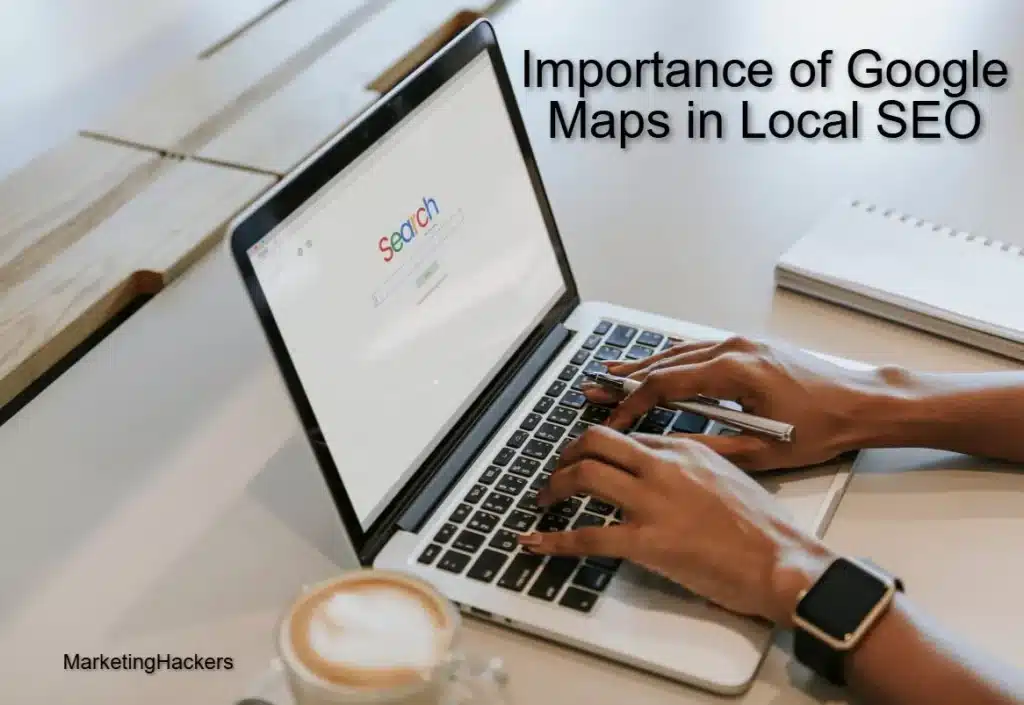The Importance of Visibility in the Local Market
Did you know that in the US, 80% of consumers search online for local businesses per week, and 32% search for local businesses daily, according to the 2024 SOCI Consumer Behavior Index’s study? With this data in mind, we will empower your local SEO to be visible by utilizing Google Maps data.
Local SEO helps businesses get found easily by customers searching online for nearby stores or services. Google Maps is a popular app where people look for businesses, and having a good listing can bring in more customers and Google Maps Scraping is one of the strategies utilized to easily extract data.
While there are arguments that data scraping of publicly available data could be protected under the First Amendment of the US Constitution, violating a website’s terms of service can still lead to legal consequences. This article will guide our readers on leveraging Google Maps data ethically and legally to enhance their local SEO strategy.

Google Maps as a Key Platform and the Importance of Local SEO
Google Maps is a cornerstone platform for connecting businesses with local consumers, with over 1 billion monthly active users globally and a dominant share of the US market. Google Maps is often the first place for Americans to find nearby businesses, and its integration with Google Search, voice assistants, and mobile apps makes it a powerful tool for businesses to attract high-intent customers actively seeking local products or services.
Optimizing a business’s presence on Google Maps by providing accurate listings, and customer reviews and using relevant SEO keywords can significantly boost visibility and drive foot traffic to any business.
Local SEO is vital for businesses targeting US customers due to the pervasive use of online searches for local discovery. Based on the compelling statistics underscoring that 80% of US consumers search online weekly, with 32% daily, demonstrate that local SEO is not just an option but a necessity for capturing customers ready to engage or purchase.
Effective local SEO strategies, such as optimizing Google Business Profiles, securing positive reviews, and using location-specific keywords, ensure businesses appear prominently in search results and Google Maps, directly influencing consumer decisions.
Understanding Google Maps Scraper
What is Google Maps Scraper?
A Google Maps scraper is a software tool or script designed to extract data from Google Maps, such as business listings, reviews, ratings, addresses, phone numbers, and other publicly available information. These tools aim to collect structured data for analysis and could support local SEO analysis.
How Google Maps Scraping Works?
Google Maps scraping involves an automated process to gather data from the platform. Below are the key aspects of how it typically functions, presented for educational purposes only.
- Data Extraction Techniques
- Web Scraping: Scrapers use bots or scripts (e.g., written in Python with libraries like BeautifulSoup or Scrapy) to navigate Google Maps’ web interface, mimicking human browsing to extract data from business profiles or search results.
- API Simulation: Some scrapers attempt to reverse-engineer Google’s internal APIs by sending HTTP requests to endpoints used by Google Maps, retrieving JSON or HTML data.
- Geographic Queries: Scrapers often input location-based search terms or coordinates to pull data for specific areas, iterating through map grids to cover large regions.
- Automation and Scaling: Tools may use headless browsers (e.g., Puppeteer) to automate clicks, scrolls, or searches, handling dynamic content like reviews or “load more” buttons.
- Types of Data Collected: Scrapers typically target the following data points from Google Maps:
- Business Details: Name, address, phone number, website, and business category (e.g., “Italian restaurant”).
- Geographic Data: Latitude, longitude, and service area boundaries.
- Reviews and Ratings: Star ratings, review text, reviewer names, and response status.
- Operational Information: Hours of operation, peak times, and amenities (e.g., Wi-Fi, parking).
- Search Metadata: Popular search terms or keywords associated with a business.
Why Google Maps Scrapers Are Game Changers for Local SEO?

While scraping Google Maps is not recommended, understanding why such tools are often discussed as impactful for local SEO can highlight the value of legally accessing similar data through official channels.
These are the reasons why tools like Google Maps scrapers are perceived as game-changers for local SEO, assuming ethical and legal data access methods (e.g., via Google APIs) are used instead:
- Access to Comprehensive Local Business Data: Tools that extract data like business names, addresses, phone numbers, ratings, and reviews provide a detailed snapshot of the local market.
- Competitor Analysis and Benchmarking: By collecting data on competitors’ reviews, ratings, and customer feedback, businesses can benchmark their performance and refine their strategies.
- Keyword and Trend Insights for Optimization: Scrapers can reveal popular search terms or categories used in a specific area, helping businesses tailor their Google Business Profile with relevant keywords.
- Lead Generation and Market Expansion: Analyzing review data provides insights into customer preferences and pain points. For instance, a retailer could identify common complaints about competitors’ service speed and emphasize their own quick service in marketing, improving relevance in local searches.
Why It Matters for Local SEO?
Local SEO thrives in relevance, distance, and prominence as outlined by Google’s ranking factors. Tools that provide structured data, like Google Maps Scrapers, enable businesses to optimize their profiles, outrank competitors, and possibly capture the 80% of US consumers who search for local businesses weekly.
The data collected from Google Maps is critical for local SEO because it directly influences Google’s ranking factors: relevance, distance, and prominence. Here’s why it’s impactful:
- Competitor Benchmarking: Analyzing competitors’ listings (e.g., reviews, categories, or keywords) helps businesses optimize their Google Business Profiles to rank higher in the “Local Pack,” which captures up to 44% of clicks.
- Keyword Optimization: Data on trending search terms or categories (e.g., “vegan cafes”) allows businesses to align their profiles with what local customers are searching for, boosting relevance in “near me” queries.
- Customer Insights: Review and rating data reveal customer preferences and pain points, enabling businesses to address feedback and improve prominence through positive engagement.
- Lead Generation: Business contact details support targeted outreach, helping agencies or marketers identify local businesses needing SEO improvements.
- Market Analysis: Geographic and operational data help businesses identify underserved areas or high-demand niches, guiding expansion or advertising strategies.
By using platforms like Google Maps legally, businesses can dominate local searches and drive immediate conversions from “near me” searches. Aside from scraping, you can also use Google Places API or Google Business Profile tools to access data ethically and ensure compliance with Google’s Terms of Service and US Laws.
“Game-Changer” and “Why It Matters” in Local SEO Explained
They are closely related but differ in focus and framing. Google Maps scrapers are game-changers in SEO because it emphasizes the transformative potential in revolutionizing local SEO strategies. It highlights how access to structured data can provide an edge, enabling businesses to dominate local search through insights previously hard to obtain systematically.
In terms of scope of explanation, the “Game Changer” term is broader, discussing strategic advantages like lead generation, market expansion, and trend identification.
“Why It Matters” focuses on the practical importance of the data for local SEO, explaining how it directly supports Google’s ranking factors (relevance, distance, prominence) and drives business outcomes like visibility and conversions. The explanation is more focused on operational SEO tactics, such as optimizing Google Business Profiles, responding to reviews, or aligning with customer search terms.
Meanwhile, both “Game-Changer” and “Why It Matters” Have Similarities:
- Both sections highlight the value of Google Maps data in enhancing SEO.
- SEO Benefits: Both discuss similar benefits, such as competitor analysis, keyword optimization, customer insights, and market opportunities.
- Focus on Google Maps: Both emphasize Google Maps as a key platform for local SEO, given its dominance in local search and its role in capturing high-intent customers.
Although they are not they same and identical but they overlap significantly. The “Game Changer” explanation is a broader, strategic take on how data access revolutionizes local SEO, while “Why It Matters” is a more focused, tactical breakdown of how the data drives SEO outcomes.
Together, they provide a comprehensive view: the former inspires businesses to leverage data innovatively, while the latter explains how to apply it effectively.
Local SEO Strategies Using Google Maps Data
There are different local SEO strategies that a business could employ to leverage Google Maps for better local search visibility. They are the following:
- Improving Your Google Business Profile (GBP): Your GBP is your free online listing on Google Maps and Search, crucial for attracting local customers by providing essential information like location, hours, and reviews. Optimizing your GBP with complete details, engaging content, and active management improves your visibility.
- Review Management: It involves actively monitoring and responding to online customer feedback to build trust and improve visibility. Responding to both positive and negative reviews professionally and promptly shows you care and can increase your prominence in local search results.
- Local Citations and Backlinks: Local citations are online mentions of your business’s NAP (Name, Address, Phone), and consistent NAP across directories is crucial for building trust with search engines and improving local rankings. Local backlinks are links from other credible, geographically relevant websites that boost your website’s authority.
- Mobile Optimization: Given that about 60% of local searches occur on mobile, mobile optimization is crucial for both your GBP and website to ensure a seamless experience. A mobile-friendly GBP provides easy access to essential information and actions, while a mobile-optimized website ensures engagement and better rankings for mobile local search results.
- Voice Search and Emerging Trends: Optimizing for voice search involves using natural language and long-tail keywords to match how people speak local queries like “best pizza near me.” Emerging AI-driven search trends emphasize understanding user intent and providing comprehensive, accurate information to be visible in local search results.
- Analytics and Tracking: Using tools like GBP Insights and Google Analytics, are essential for measuring the performance of your local SEO efforts, such as clicks and calls from your GBP and website traffic from local searches. By analyzing this data, you can understand what’s working and what’s not, allowing you to refine your strategies.
Ethical Data Strategies for Sustainable Local SEO

Ethical data practices are crucial for sustainable local SEO, when scraping Google Maps, always follow Google’s rules and Terms of Service. Avoid significant legal risks associated with scraping which can lead to severe penalties. Instead of scraping, businesses should prioritize compliant methods for long-term success and a solid local search presence.
Google’s official APIs, such as the Places and Geocoding APIs, offer a legal and structured way to access valuable data. These APIs provide accurate business details, geographic coordinates, and other relevant information directly from Google.
Adhering to a compliance checklist, which includes prioritizing privacy, using official APIs, and respecting robots.txt, is essential for ethical data practices. Always remember that laws like GDPR and the US Privacy Act control how data is used.
Conclusion
Local SEO and Google Maps are vital for businesses, especially in the United aiming for online visibility, as most consumers search locally daily. Optimizing your Google Business Profile and securing prominent placement on Google Maps can significantly increase customer traffic. Strategies like accurate listings and positive reviews enhance a business’s discoverability and appeal to local searches.
While Google Scraping tools like those from Outscraper, the popular Google Maps Scraper, can offer a way to gather business data, it’s crucial to understand Google’s Terms of Service. Outscraper not only offers Google Maps scraping tools but also other scraping tools from various public websites.
Another thing to consider in utilizing Google Maps and other web scraping tools is the ethical side of things. Ethical local SEO involves optimizing your Google Business Profile with complete and accurate information and actively managing customer reviews. Building consistent local citations and earning backlinks from relevant US websites also boosts your authority. Ensuring your GBP and website are mobile-friendly caters to the majority of local searches.
To effectively leverage Google Maps data ethically, businesses should claim and optimize their GBP and consider using Google’s official APIs. Implementing these outline tactics will lead to a stronger, more sustainable local search presence and help you connect with more customers.
